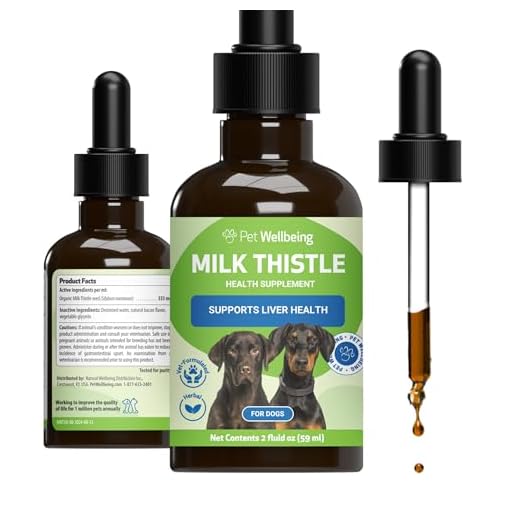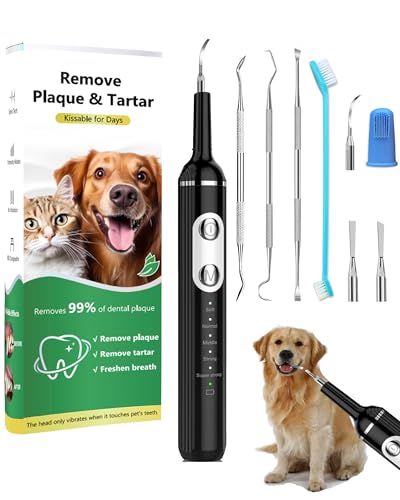








Start with a high-quality, protein-rich diet tailored for pets with compromised organ function. Look for options that highlight easily digestible protein sources, such as chicken or fish, while avoiding excessive fats. Incorporating specific supplements, like Omega-3 fatty acids, can aid in reducing inflammation and promoting overall health.
Regular monitoring is critical. Schedule routine check-ups with your veterinarian to assess enzyme levels and overall well-being. Blood tests can provide insights into your pet’s health status and guide dietary adjustments. Pay attention to any changes in behaviour or appetite, as these can be early indicators of worsening conditions.
Hydration is key. Ensure your furry friend has access to fresh water at all times. Dehydration can exacerbate existing health problems, so encourage your pet to drink regularly. You might consider adding wet food to their diet to boost moisture intake.
Consider natural remedies as a complementary approach. Milk thistle has been shown to support organ function and may help in recovery. Always consult with a vet before introducing new supplements to ensure they are safe and suitable for your companion’s specific needs.
Engaging in gentle exercise is beneficial, but keep it moderate. Short walks and light play can help maintain a healthy weight and improve your pet’s mood without overexerting them. Monitor their energy levels and adjust activities accordingly.
Lastly, be patient and attentive. Recovery from hepatic issues is often gradual. Your commitment and care play a significant role in your pet’s journey towards better health.
Strategies for Managing Hepatocellular Compromise in Canines
Administering a specialised diet can significantly aid in restoring liver function in your pet. Focus on low-protein meals that are easy to digest, incorporating ingredients like rice, boiled chicken, and pumpkin. This supports the digestive process while reducing the workload on the compromised organ.
Hydration is paramount. Ensure your companion has constant access to fresh water. Dehydration can exacerbate issues, so monitor their water intake closely, especially if they are on medications that may induce thirst.
Introduce milk thistle supplements, known for their protective properties against hepatotoxicity. Consult your veterinarian for appropriate dosage tailored to your pet’s weight and condition. This herb has shown promise in promoting liver regeneration.
Frequent vet check-ups are necessary to monitor progress. Regular blood tests can provide valuable insights into enzyme levels and overall health. This approach allows for timely adjustments in care and treatment protocols.
Limit exposure to toxins. Keep your canine away from chemicals, certain plants, and human foods that can further stress their hepatic system. Awareness of common household items that are harmful is crucial.
Incorporate gentle exercise into their daily routine. Short walks can stimulate circulation without overexerting them. This activity helps maintain a healthy weight, reducing additional strain on their bodily systems.
Consideration of probiotics may also offer benefits. These can help balance gut flora, which may be disrupted due to liver issues. A balanced gut can positively influence overall health and recovery.
Lastly, ensure a calm environment. Stress can negatively impact well-being, so create a soothing space for your pet. Engage in quiet activities together; this not only strengthens your bond but also aids in their recovery process.
Recognising Symptoms of Hepatic Issues in Canines
Pay close attention to your pet’s behaviour and physical appearance. Early detection can make a significant difference in management. Look for unusual lethargy; if your furry friend seems less energetic than usual, it could be a warning sign. Notice their appetite. A sudden decline in interest in food or water is often a red flag.
Physical Symptoms
Check for any changes in coat condition. A dull or brittle coat can indicate underlying problems. Observe their eyes and gums; yellowing may suggest a serious condition. Keep an eye on their bathroom habits as well. Unusual stool colour, particularly pale or clay-like, might signal an issue. Additionally, if your companion is vomiting more frequently or has diarrhoea, these could also be concerning signs.
Behavioral Changes
Watch for any signs of confusion or disorientation. If your pet appears dazed or is having trouble navigating familiar spaces, this change in cognitive function is significant. Increased thirst and urination are also common indicators. Your dog’s behaviour might shift; they could become more irritable or withdrawn. If you notice any of these symptoms, consulting a veterinarian promptly is crucial for appropriate evaluation and intervention.
Initial Steps to Take After Diagnosis
First, schedule a follow-up appointment with your veterinarian to discuss the findings and outline a management plan. This ensures you’re both aligned on the next steps and can address any immediate concerns.
Modify your pet’s diet as recommended by the vet. A specialised nutritional plan might be necessary to support recovery. It’s crucial to consult with a veterinary nutritionist to select appropriate food that promotes healing.
Medications and Supplements
Administer any prescribed medications strictly according to the vet’s instructions. Regularly check for any side effects and report these to your veterinarian. Additionally, some supplements may be suggested to aid recovery, such as milk thistle or SAMe. Always consult your vet before introducing new products.
Monitor Behaviour and Symptoms
Keep a close eye on your companion’s behaviour and health. Note any changes in appetite, energy levels, or bathroom habits. Documenting these observations can provide valuable insights during follow-up visits.
Maintain a stress-free environment. Avoid any abrupt changes in routine that might cause anxiety. Gentle exercise and plenty of rest are vital during this recovery phase.
Stay informed. Read reliable resources about liver health in pets to better understand their condition and the care they require. This knowledge will empower you to make informed decisions regarding their wellbeing.
Dietary Changes for Liver Health in Dogs
Switching to a low-protein diet can significantly support your pet’s recovery. Chicken, fish, or eggs are great sources of high-quality protein. However, consult your vet for the right amount based on your companion’s specific needs.
Recommended Foods
Incorporating easily digestible carbohydrates is beneficial. Sweet potatoes and rice are excellent choices, providing energy without placing undue stress on the digestive system. Including fresh fruits and vegetables can also aid in nutrient absorption.
Foods to Avoid
Steer clear of fatty foods, processed items, and anything toxic like chocolate, onions, and grapes. These can exacerbate existing complications and hinder recovery.
| Food Type | Examples | Notes |
|---|---|---|
| High-Quality Proteins | Chicken, Fish, Eggs | Support muscle maintenance |
| Digestible Carbohydrates | Sweet Potatoes, Rice | Energy source, easy on the stomach |
| Fruits & Vegetables | Carrots, Blueberries | Rich in antioxidants |
| Avoid | Chocolate, Onions, Grapes | Toxic and harmful |
Incorporate small, frequent meals to help with digestion and reduce the burden on the system. Always introduce new foods gradually to monitor for any adverse reactions. Regular vet check-ups are essential to adjust the diet as needed. Your furry friend deserves the best care possible, and a tailored diet can make all the difference.
Medications and Supplements for Liver Support
Milk thistle is a top choice for promoting healthy hepatic function. This herb contains silymarin, known for its antioxidant and anti-inflammatory properties. I’ve seen noticeable improvements in energy levels in my furry friends after incorporating it into their routine. Consult your vet for the right dosage based on your pet’s weight.
Another beneficial option is SAMe (S-adenosylmethionine). This compound plays a role in maintaining cellular health and has shown promise in supporting the body’s detoxification processes. In my experience, pets often respond positively to this supplement, especially when it’s given consistently.
Additionally, consider incorporating vitamin E. This antioxidant helps protect cells from oxidative stress. I’ve found that using it alongside other supplements enhances overall wellness. Again, always check with your veterinarian for appropriate dosages.
Here’s a brief list of medications and supplements that can aid in supporting hepatic health:
- Milk Thistle (Silymarin)
- SAMe (S-adenosylmethionine)
- Vitamin E
- Ursodiol – a bile acid that can help in improving bile flow and reducing liver inflammation.
- Denamarin – a combination of SAMe and silybin, specifically formulated to support liver function.
Always keep a close eye on any changes in your pet’s behaviour or health after introducing new supplements. Regular vet check-ups ensure that what you’re doing is safe and effective. Every pet is unique, and what works for one may not work for another. Tailoring the approach to your companion’s specific needs is vital.
Monitoring and Follow-Up Care for Affected Dogs
Regular check-ups are crucial for canines with compromised organ function. Schedule veterinary appointments every 1-3 months, based on your vet’s recommendations. Blood tests should be a routine part of these visits to assess enzyme levels and overall health. Keep a log of results to track progress over time.
Home Monitoring
Observe your pet closely for any changes in behaviour or appetite. Maintain a daily routine to help you identify abnormalities. Here are key factors to monitor:
- Appetite and thirst levels
- Energy and activity levels
- Weight fluctuations
- Coat condition and skin health
- Bowel movements and urination patterns
If any concerning signs arise, contact your veterinarian immediately. Consistent communication with your vet can help adjust treatment plans as needed.
Nutrition and Supplements
Continued dietary management is paramount. Work with your vet to ensure the diet remains suitable, including any necessary adjustments based on test results. Some supplements may support overall health; however, always consult your veterinarian before introducing new products.
- Milk thistle for its antioxidant properties
- Omega-3 fatty acids for inflammation reduction
- Specific vitamins and minerals tailored to your dog’s needs
Regular monitoring and adjustments can significantly enhance your pet’s quality of life. A proactive approach fosters their recovery and allows you to enjoy many more happy moments together.
When to Consider Advanced Treatments or Surgery
Advanced medical intervention becomes necessary if your canine companion exhibits severe symptoms such as jaundice, persistent vomiting, or significant weight loss despite initial care efforts. If your pet’s condition doesn’t improve with standard therapies, consulting a veterinary specialist is crucial. They may recommend diagnostic imaging like ultrasound or advanced blood tests to assess the extent of the issue.
In cases of structural abnormalities, such as tumours or severe bile duct obstructions, surgical procedures could be the best option. Surgical intervention may include the removal of abnormal growths or damaged tissue, which can significantly enhance your pet’s quality of life. Always weigh the risks and benefits with your vet, considering your furry friend’s age, overall health, and recovery potential.
Monitoring Post-Procedure
After any advanced treatment, regular follow-ups are essential. Your vet will likely schedule check-ups to monitor recovery and adjust medications as needed. Keep a close eye on your pet’s behaviour and appetite during this time. If you notice any changes, such as lethargy or lack of interest in food, contact your vet immediately.
Incorporating a high-quality diet tailored for your pet’s specific needs can enhance recovery. For instance, consider options like the best dog food for leonburger that supports overall health and aids in the healing process. Choosing the right nutrition can play a pivotal role in your dog’s recovery journey.









